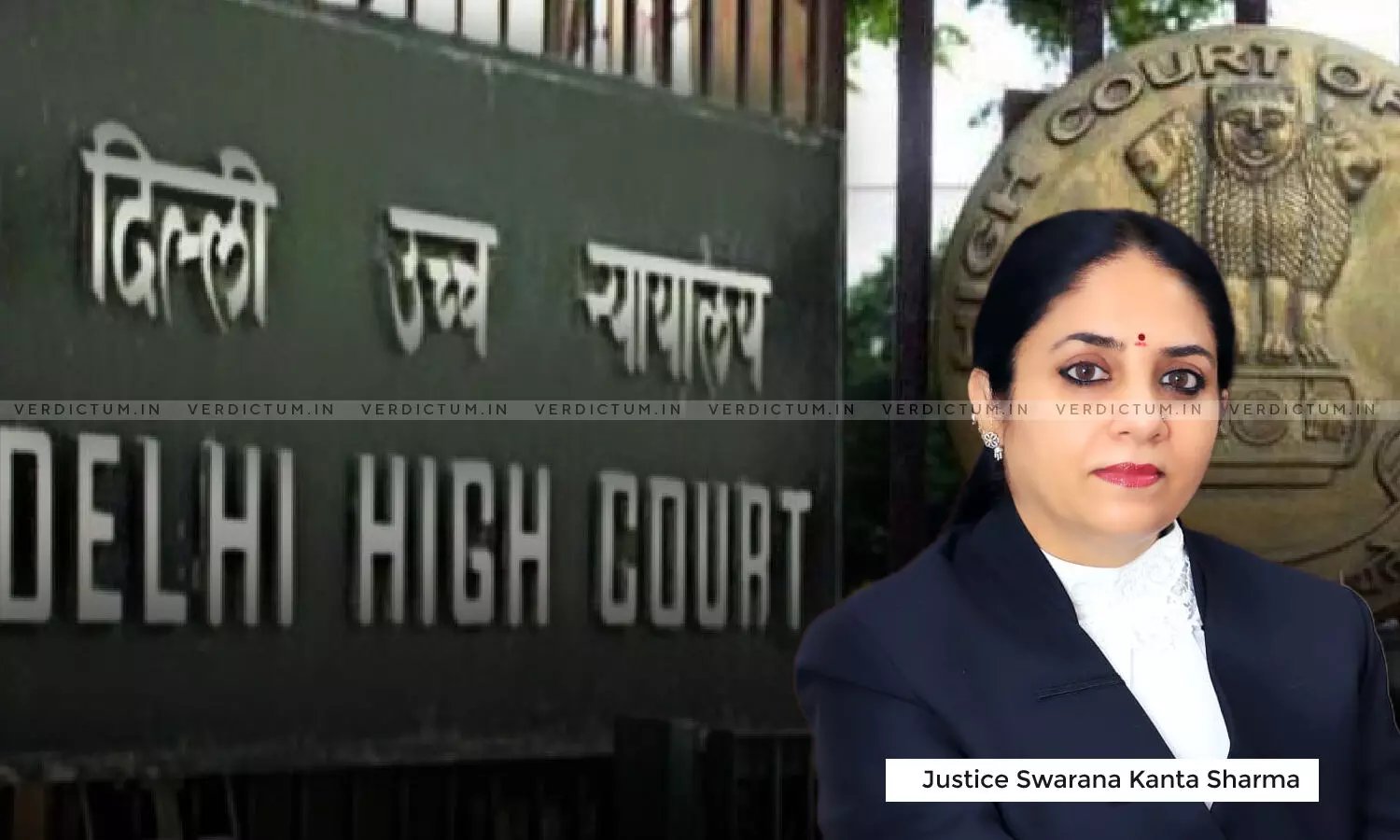
Fundamental Right To Life Includes Right To Have A Child: Delhi HC Grants Parole To Murder Convict
 |
|The Delhi High Court held that the right to life under Article 21 of the Constitution extends to a convict's right to have a child.
The Court allowed a Petition challenging the order of the Deputy Secretary (Home), whereby the parole application of a murder convict was dismissed.
The Court emphasized the crucial significance of procreation in maintaining familial bonds and preserving one's legacy. The Court also noted that judicial decisions ought to delicately balance the preservation of a convict's fundamental rights, considering the realities of life and acknowledging legitimate human desires.
The Bench of Justice Swarana Kanta Sharma observed, “this Court has no hesitation to hold that right to life under Article 21 of the Constitution of India will include right of a convict to have a child when he is not blessed with a biological child by being extended the relief of grant of parole for this purpose where he needs medical assistance and the biological clock due to his age may weaken and make prospects of having a child bleak”.
Advocate Ashutosh Kaushik appeared for the Petitioner and Additional Standing Counsel Rupali Bandhopadhya appeared for the State.
The Petitioner, serving a life sentence in Tihar Jail, filed a writ petition seeking parole. Convicted in the case under Sections 302, 201 and 404 of the Indian Penal Code, 1860 (IPC), the Petitioner had served over 14 years in prison, excluding remission. Aggrieved, the Petitioner approached the High Court challenging the order of the Deputy Secretary (Home) whereby the parole application was dismissed. The Petitioner contended that the Petitioner and his wife need specific medical examinations, diagnostic tests, and possibly IVF treatment.
The Court framed the following issue: “Whether, in the face of a rejected parole application, the preservation of familial lineage through procreation constitutes a compelling enough ground to warrant intervention”.
The Court observed that Article 21 of the Constitution, guaranteeing the fundamental right to life and personal liberty, is not entirely forfeited during incarceration. While acknowledging the surrender of personal liberty for the State's safety and rule of law, the Court emphasized that the convict retains the protection of the fundamental right to life, which, in specific cases, includes the right to have a child. The Court noted that if the prison rules lack explicit provisions regarding procreation and parenthood as grounds for parole, it does not prevent a Constitutional Court from interpreting and adjudicating based on the broader principles and practical context.
“However, in this Court’s opinion, if the rules do not provide for a particular specific ground, it cannot bar a Constitutional Court to go beyond the specific mention of a ground and can, in the facts and circumstances of a case, interpret and adjudicate a prayer before it by referring to the intent and content of the Rules and the practical context in which they need to be interpreted”, the Bench added.
The Bench noted that in cases where the age of the convict and the biological clock of the convict and their marital partner could hinder their ability to conceive due to long incarceration, such prayers should be considered and adjudicated with empathy while staying within the bounds of the law.
Furthermore, the Bench observed that a constitutional duty exists to uphold the fundamental rights of every citizen, including convicts. Recognizing the natural desire for biological children, the Court noted that seeking parole for procreation, given the constraints of the biological clock, should not be misconstrued but upheld as a fundamental right.
The Court noted, “if the rules do not provide for a particular specific ground, it cannot bar a Constitutional Court to go beyond the specific mention of a ground and can, in the facts and circumstances of a case, interpret and adjudicate a prayer before it by referring to the intent and content of the Rules and the practical context in which they need to be interpreted”.
Additionally, the Bench observed the importance of the law accommodating diverse perspectives and respecting fundamental rights, particularly the right to life under Article 21. The Bench affirmed the right of a convict to have a child, noting sensitivity in adjudicating such cases. The Court rejected a narrow interpretation of statutes, observing that denial of parole for parenthood should consider the unique circumstances of each case.
The Bench upheld the enduring right to procreate during incarceration under specific conditions. The Court, exercising its extraordinary jurisdiction, aimed to ensure that incarceration doesn't impede the convict's fundamental right to parenthood, striking a balance between the state's interests and the individual's rights.
Therefore, the Court noted the Petitioner's efforts at reform in the past two years and observed that the case doesn't pertain to maintaining conjugal relationships or conjugal rights. Instead, it focuses on the fundamental right of a convict to undergo necessary treatment for having a child while granted parole, within the legal parameters and rules governing parole under the Delhi Prisons Rules, 2018.
Furthermore, the Bench noted the real nature of justice, considering the unique value of the right to procreation during incarceration, and concluded that the prayer for parole for medically-assisted procreation is a reasonable and understandable desire, entitling the convict to parole on this ground.
While the desire to procreate may not be an absolute and irrefutable right, the Bench emphasised that it requires a contextual examination. Factors such as the prisoner's parental status and age should be considered to maintain a fair and just balance between individual rights and broader societal considerations.
Consequently, the Court noted that the plea for parole to enable medically assisted procreation, considering the advanced age of the convict and his wife, is a legitimate desire to protect and preserve their lineage.
Accordingly, the Court allowed the Petition and granted the Petitioner parole for four (04) weeks.
Cause Title: Kundan Singh v State of NCT of Delhi (2023:DHC:9342)